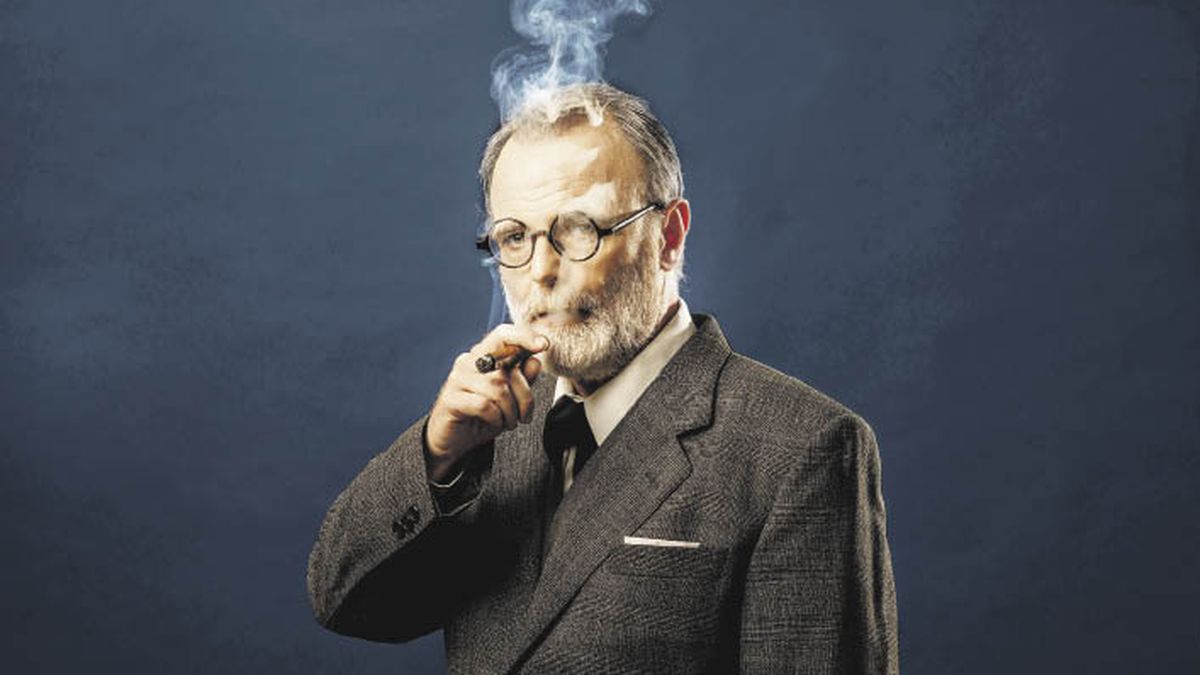Luis Machin: It’s different because now I’m not Lewis but Freud and although it’s the same adaptation, changing the character changes everything. A decade passed and I still remember Lewis’s texts but now I listen to them and used to say them, that has changed the interpretive point of view. Although it is the same version, we changed a few things and we kept the same work team except for Jorge Suárez who is in “Lapland”. He is a friend who encouraged me in my decision to do the work.
Q.: What is the main attraction of seeing Freud on stage?
LM: In the first place, it is for all those who psychoanalysis has done us good, three years ago I did not psychoanalyze myself but I did it for 20 years and I am thinking of going back. Freud was a person who did not keep quiet even before his staunchest enemies, all his thought and studies are still present. When we did the play, there were very different people, not only those closely linked to psychoanalysis, but also religious people. We had five priests in the first row, María Kodama, personalities of letters, and that was permanent because the work raises a deep discussion between two points of view that, however, manage to agree in some aspects that are still not convinced with what the other think.
Q.: How does the character of Lewis counterbalance?
LM: He had a very prolific activity in literature although he is known especially for the “Chronicles of Narnia”. He was a professor at Oxford and although this meeting cannot be documented, it is known that Freud went to London escaping Nazism and met with people who thought very differently from him. He faced religious thought from his scientific position and the abyss that separated him from faith did not prevent him from being curious to listen to those other voices.
Q.: How do you endow a play that is a dialogued duel with theatricality?
LM: It is a duel of dialogue but also of composition and theatrical language. My way of seeing the performance is with the body in front, the body of the actor carrying the text forward with the complexity that it has. In this case it is a Freud in his last days, I don’t know if many know that he decided to commit suicide together with his doctor, when there was still no talk of euthanasia. He resolved it after more than thirty operations until he realized that cancer was defeating him. Freud was a man who only took aspirin because he didn’t want to stop being lucid until the end, and that’s how it was. Laryngeal cancer is present and runs through the entire play as he discusses the endings of his life; The disease does not annul him in his thinking and posture, but in his way of speaking, and I kept that in mind for the composition.
Q.: How much of the context of the Second World War and the advent of Nazism?
LM: The meeting between Freud and Lewis occurs when Germany invades Poland, a moment of war so strong that it involves the whole world. There we see the thought of this man who speaks of the war that will end all wars, what seems to be something inherent to humanity, to make war and impose itself on others. In this sense, he is impressively current, as well as exposing two opposing positions of thought.
Q.: How do you see the theater scene and its three circuits?
LM: Although the pandemic does not seem to have completely ended, after the isolation stage the theater recovered its verve and was strengthened. There is data from around the world that indicates that the public went more to the theater than to the cinema and that speaks of the fact that people have grown tired of looking at virtuality on screens since their confinement. Contact with the other is a necessity and that is very graphic in the theater. Argentina continues to maintain an important theatrical culture that is not exhausted in the circuits. Although the idea prevailed that the viewer wants to be distracted by passing comedies in the face of so much uncertainty, they also like to see works where the capacity for reflection is deeper than the simple comic story, and there we are. Our work also has moments of outbursts linked to laughter, a product of the tension that escapes from those places.
Q.: Is there an audience to make the theatrical offer profitable?
LM: I trust that people sometimes choose the circuits, other times they feel seduced by the works, others by the actors and actresses they see on TV and want to get closer to see what they do in the theater. When I choose a work I hope not to disappoint the choice of the public that comes to see me. I admit that the first thing I think about is me to lean towards a work, I don’t do a survey to see what people want to see. Maybe I could lean towards something that has more media resonance but that never determined me when choosing. So I turn to a complex text like this and the percentage of the public doesn’t intimidate me.
Source: Ambito
I am an author and journalist who has worked in the entertainment industry for over a decade. I currently work as a news editor at a major news website, and my focus is on covering the latest trends in entertainment. I also write occasional pieces for other outlets, and have authored two books about the entertainment industry.




